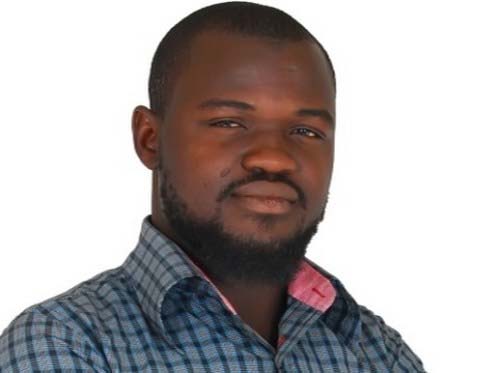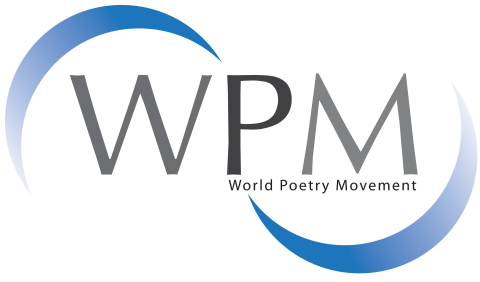Report of the WPM Africa Congress

POETRY AS PATHYWAY FOR THE RECONSTRUCTION OF HUMANITY
Paul Liam: Coordinator of the World Poetry Movement in Nigeria
The enigmatic power of poetry to reconstruct the unity of humanity towards strengthening global action for social change permeated the maiden Africa congress of the World Poetry Movement which was held from the 21st to the 22nd of January 2023. The virtual congress which had as its theme “Migration from Death to Life” witnessed the participation and support of the Bolivarian Republic of Venezuela and the Republic of Colombia through the representation of the Ministry of Foreign Affairs and the Ministry of Communications and Information of the Bolivarian Republic of Venezuela. The Africa congress is one of the continental congresses billed to hold in 2023 as a precursor to the first world congress of the World Poetry Movement scheduled to hold at the International Poetry Festival of Medellin in July. The congress provided a unique opportunity for African poets to discuss, and appropriate common poetic actions that would form a part of the global poetic visions geared towards the elevation of poetry and the amplification of its instrumentality as a non-kinetic measure in fostering the struggle for peace and social justice around the world, especially in Africa.
The congress commenced with an opening ceremony which had in attendance representatives of the Foreign Ministry of Foreign Affairs of the Bolivarian Republic of Venezuela led by the Foreign Minister, Mr. Carlos Faria. In his opening remarks, Mr. Faria paid a golden tribute to Africa as the mother continent where “the beautiful adventure began” and went on to extol the power of poetry and its ability to heal humanity and unite the world. He congratulated the African poets for participating in the congress and expressed the willingness of the Bolivarian Republic of Venezuela to support the congress and wished the participants a fruitful deliberation. Shortly after, Mr. Fernando Rendon presented an instructive welcoming speech that set the agenda for the deliberations that followed afterward. He eulogized the evocative power of poetry as a fundament for the edification of the human soul and spirit, he invoked the spiritual and cultural essence of poetry by positing that, although poetry cannot change society, it will always change people’s consciousness. He further stated that “poetry is the soul of the people” hence it should be made to reach young people, women, and children.
Mr. Rendon also drew attention to the dire existential realities confronting the world today, including needless wars, climate change, poverty, and the many ills bedeviling humanity. He opined that “it is love and not death that must win at the top of history. He, therefore, called for the establishment of a world poetry school to institutionalize the teaching and learning of poetry as a means of humanizing the world. he concluded by commending and congratulating the delegates for their dedication to the course of poetry and wished them successful deliberations.
Immediately after Mr. Rendon’s speech, the coordinator of the Africa Coordinating Committee of the World Poetry Movement, Dr. Ayo Ayoola-Amale took over the moderation of the congress with a speech that highlighted the profundity of poetry and how the WPM in Africa is expanding the landscape of creative expression through the various activities of its chapters. She spoke of the remarkable impact of poetry and how the WPM in Africa, especially in Ghana where she doubles as the national coordinator, is working with schools and young people, to inculcate in them the subliminal agency of poetry to affect society positively. She also spoke about climate change and the danger it continues to pose for the entire world, she bemoaned the classification of climate change as fake news while fake news is regarded as truth. She stressed the need for conversations that are oriented toward the protection of the environment as she enthused that Africa bears the bug of the crisis confronting the world today. Dr. Ayoola-Amale while speaking about the violations of human rights in Africa called on all African nations to speak out against the violations of human dignity on the continent. She further submitted that life has become a perennial journey of strife for a lot of people and suggested the need for an open platform for social change globally. She equally drew attention to the fact that in Africa stories are told in different forms and went on to say that she looked forward to a harvest of poetry performances to celebrate the work of local poets.
The congress also had in attendance the continental coordinators of the WPM including the coordinators of Asia, Europe, and America, who also made presentations on the progress of the Movement in their respective continents. The continental coordinators included Rati Saxena, Francis Combes, and Oscar Saavedra. Shortly afterward, congress listened to the presentation of progress reports by national coordinators which were conducted in alphabetical order starting with Algeria. Achour Fenni, the national coordinator of Algeria called for continuous engagement with the governments and the establishment of national networks for culture as well as for the creation of a national space for poetry. Fenni also stated that it is imperative to undertake research from a poetry perspective to foreground the institutionalization of poetry. The national coordinator of South Africa, Zolani Mkiva, made his presentation next because he was experiencing power failure; an unfortunate decimal in most African countries. Mkiva spoke about the various activities carried out in South Africa, he enthused that poets are the carriers of visions for future generations. He said that poetry must be used to speak against the sanctions around the world which he described as the offshoot of colonialism. He also emphasized the need to employ poetry in the promotion of African cultures and heritages including the digitization of poetry in furtherance of the preservation of African cultures.
His presentation was followed by that of the Cameroonian National Coordinator, Mpesse Geraldin who gave an account of the activities of the Movement in Cameroon including the appointment of sub-coordinators in each of the ten regions of the country. He went on to say that he organized workshops where children without access to books were taught to appreciate poetry. Ashraf Aboul-Yazid, the National Coordinator for Egypt in his presentation highlighted the challenges facing Africa which continue to threaten the lives of the people, he said that it was time to think critically about creating safe ways of protecting the future. He noted that illegal migration is a major cause of the deaths of many Africans attempting to leave the continent in search of greener pastures in Europe, and called for a rigorous campaign to create awareness of the inimical development of illegal migration. Shipwe Nzima, the National Coordinator of Lesotho, on the other hand, spoke of the important role of poetry and spoken word in speaking for social justice in society. She advocated for the inclusion of the creative arts in school curricula in Africa, as she noted that in Africa, many of the schools have not included the creative arts in their curriculum. Some of the activities she reported include the production of twenty audiobooks featuring twenty books, and the production of monthly podcasts featuring spoken word artists.
Ismaël Diadié, the National Coordinator for Mali, spoke about the Movement’s activities in Mali, and also drew attention to the needless war going on in Mali and said he hope that those involved would regain their sense and stop the war. Other national coordinators who presented their country’s reports included: Gloria Chvatal for Morocco, Keamogetsi Joseph Molapong for Namibia, Salay Boubé Bali for Niger, Oumar Farouk Sasay for Sierra Leon, Patron Henekou for Togo, Moez Majed for Tinisia, Vera Duarte for Cabo Verde, Julien Kilanga for Congo, Recaredo Silebo Boturu for Equitorial Guinea, Paul Sizzie for Malawi, Amose Mucavele for Mozambique, Paul Liam for Nigeria, and Conceição Lima for Sao Tome and Principe.
The participants in their various presentations agreed that poetry is a powerful vehicle for bridging the gap between human beings and is capable of healing the world. They called for more collaborations between African nations in celebrating and accentuating the power of poetry towards the attainment of social change in the continent and around the world. The need to create a translation committee to translate and make poetry accessible to more languages was also stressed, while they also called for the establishment of an African poetry festival to galvanise the poetic voices on the continent into a common weapon for continental actions. They emphasized that an African poetry festival was imperative because it will provide an opportunity for the unification of African poets. The promotion of poetry in indigenous African languages also featured prominently in the deliberations. The participants opined that it is important to impress on African governments through their ministries of education to make the study of poetry compulsory in schools. And in order to be able to implement and achieve the foregoing, they proposed for the development of an action plan for Africa.
The multilingual congress was conducted in Spanish, English, and French, with translations for easy comprehension by the participants. The deliberations were moderated by Dr. Ayo Ayoola-Amale, Ashraf Aboul-Yazid, Siphiwe Nzima, and Ismael Diadie. The deliberations were seamless as everyone was along.
The second day of the congress featured presentation of proposals by the participants, and it began with Dr. Ayo Ayoola-Amale’s opening remarks and recap of the deliberations of day one. This was followed by Ashraf Aboul-Yazid’s moderation of the presentation of proposals, and one after another, the participants presented their ideas for the African action plan which were generally well received by the congress. Ismael Dadie then moderated the nomination of the African delegates for the first World Poetry Movement congress schedule to take place in Medellin during the International Poetry Festival of Medellin in July 2023. The participants took turns to nominate those they want to form part of the African delegation to the world congress. Fifteen national coordinators were subsequently nominated and ratified by the congress.
Meanwhile, during the presentation of proposals, Zolani Mkiva presented a draft declaration of action for adoption by the Congress but it was unanimously agreed that a committee is required to review the declaration and subsequently represent it for ratification. Although the constitution of a committee to undertake the reconciliation of the declaration was not done at the end of the congress, it agreed in principle that this will be done with the supervision of the Coordinator of the African Committee led by Dr. Ayo Ayoola-Amale.
In all, it was a successful maiden congress with commendable outcomes. The African Congress therefore has set the agenda for the rest of the world to follow as we look forward to the remaining continental congresses later in the year.
Attached is the draft declaration for Africa as presented at the African congress.
Declaration of the WPM Africa
We the Poets of Africa gathered in a virtually Congress from 21 to 22 January 2023 under the banner of the World Poetry Movement (WPM). The Congress was attended by Poets from several African counties. The representatives of Governments of the Bolivarian Republic of Venezuela and Republic of Colombia participated in the African Congress. The Congress was graced by attendance of Poets from other Continents, namely, Asia, Europe, Latin America et al. The leadership WPM under the auspices of Comrade Fernando Rendon officiated in the Congress.
- Realising the importance of poetry in our cultures and indigenous languages, the role and function it can play in the social cohesion and healing the ills of societal challenges and moral decay.
- Noting the need for us to work collectively to enrich the work of the WPM in the mother continent for the development of poetry in particular and literature in general, in order to conscientise the people’s of Africa about a myriad of strategic perspectives on freedom, peace, justice and unity of purpose.
- We therefore resolve to undertake the following actuon plans:
(a) to promote that poetry be made compulsory in all African primary schools and secondary education as part of the syllabus.
(b) to use poetry as an instrument that can best protect, preserve and promote indigenous languages in Africa.
(c) to use poetry platforms to highlight our resolve against neo-colonisation and imperialism that continues to exploit the masses of our people politically and economically.
(d) to champion the cause of decolonisation in all spheres of life in Africa.
(e) to hold the Congress on annual basis
(f) to elect an executive committee that is representative of the 5 regions of Africa.

